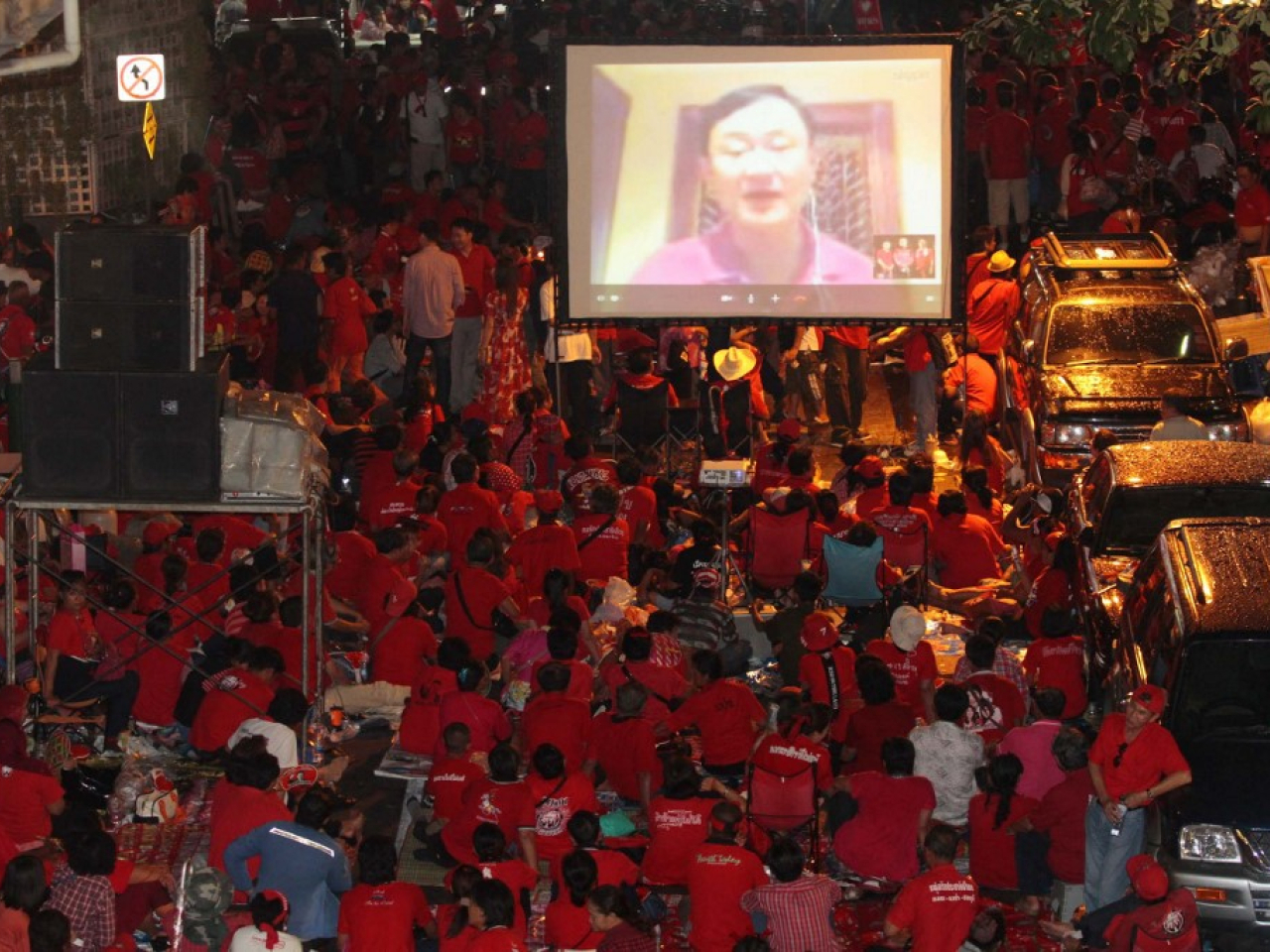A Thai court jailed 11 former "Red Shirts" protest leaders on Tuesday over their role in 2010 anti-government demonstrations which culminated in an army crackdown that left scores dead.
The "Red Shirts", supporters of former premier Thaksin Shinawatra, were found guilty of violating state of emergency rules imposed during the protests, which sought to oust then-prime minister Abhisit Vejjajiva.
Tens of thousands of Red Shirts protesters took over key intersections in the capital Bangkok in 2010, with some hunkering down in fortified protest camps and clashing with authorities.
The rallies followed Thaksin being found guilty of corruption, after he had already been ousted by a military coup in 2006 and fled the country.
The 2010 protests shut down government complexes for more than two months, and ended when soldiers used live rounds to disperse demonstrators from downtown Bangkok.
Human Rights Watch said at least 90 people were killed during the unrest, among Thailand's deadliest political episodes, and more than 2,000 were injured.
Bangkok's criminal court on Tuesday sentenced five protest leaders, including prominent activist Jatuporn Prompan, to four years and four months in prison, while six others received four-month sentences and two were acquitted, Jatuporn said.
"We respect the court's verdict," he said, adding that his legal team will request bail.
Authorities announced murder charges in 2012 against Abhisit and his deputy Suthep Thaugsuban over the deadly crackdown, but they were later acquitted.
A former chief of the Department of Special Investigations, Tarit Pengdit, who had sought to charge the pair, was instead prosecuted himself and sentenced to two years in prison for malfeasance in 2023.
The Red Shirts' patriarch, billionaire tycoon Thaksin, and his political dynasty have grappled with Thailand's pro-monarchy, pro-military establishment for two decades.
Thaksin is now serving a one-year sentence in a Bangkok prison after the Supreme Court ruled last month that he improperly served a 2023 sentence in a hospital suite rather than a cell. (AFP)





